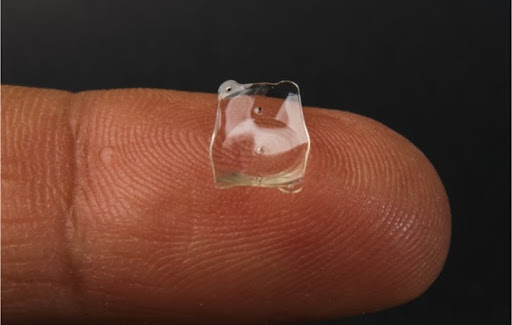Refractive errors can be irritating, but they’re easily treatable. When people don’t want to rely on eyeglasses or contact lenses, refractive eye surgeries are an option, including LASIK, PRK, and ICL surgery.
While LASIK is a well-known procedure, what is ICL surgery? Continue reading to learn more about ICL surgery, including what it is, its benefits and risks, and if it’s right for you.
What is ICL Surgery?
Implantable collamer lens (ICL) surgery implants an artificial lens to permanently rest in your eye. This artificial lens inserts between your eye’s natural lens and the iris, helping the eye’s existing lens to refract light onto the retina. This procedure can help improve your vision.
Your implanted lens consists of plastic and collagen. It’s a type of phakic intraocular lens that inserts into the eye without removing your natural lens. While this surgery isn’t required to correct your vision problems, it can reduce your need for glasses and contact lenses.
If you’re interested in ICL surgery, what conditions can this procedure treat?
What Can ICL Surgery Treat?
ICL surgery is a refractive surgery that provides you with clearer vision. This procedure can help correct poor vision caused by several refractive errors, including:
If you have any of these conditions and wish for clearer vision, ICL surgery can be beneficial. While this surgery is safe, there are risks with any medical procedure. What are the benefits and risks of this surgery?
What Are the Benefits & Risks of ICL Surgery?
It’s important to understand the benefits and risks of any potential procedure. Weighing these factors can help determine if ICL surgery is right for you.
Benefits
There are many benefits related to ICL surgery:
- It can fix severe nearsightedness
- It’s less likely to cause dry eyes than laser refractive surgeries
- It can be removed if vision changes
- It has a quick recovery time
- It’s beneficial for people unable to receive other refractive surgeries
Risks
Though ICL surgery is safe, there are potential side effects that may occur, including the risk of:
- Glaucoma
- Vision loss
- Early cataracts
- Blurry vision
- Cloudy cornea
- Retinal detachment
- Eye infection
These are all risks of ICL surgery, but it’s important to remember that serious complications are very rare and most side effects are generally minor. If you have any questions or concerns, speak with your eye doctor. They can discuss these risks in detail and explain how ICL surgery works.

How Does ICL Surgery Work?
After a refractive assessment and a prior discussion with your eye doctor, your surgery can begin. ICL surgery has several steps your ophthalmologist will complete:
- Your doctor will administer eye drops to numb your eye so you cannot feel anything.
- Your ophthalmologist will clean the eye and the surrounding area. Your eyelids are then held open with a tool known as a lid speculum.
- The surgery begins with a small incision in your eye; you’ll receive a lubricant to protect your cornea.
- Your ophthalmologist will insert the ICL (lens) through this incision, placing it between your lens and iris.
- Your doctor will remove the protective lubricant before completing the procedure. There are typically no stitches or sutures required.
ICL surgery is relatively quick, taking between 20 to 30 minutes to complete, but you’ll require follow-up appointments to monitor how your recovery is progressing.
ICL surgery can be beneficial, but other surgeries are available, such as LASIK and PRK. How does ICL surgery compare to these other options?
How Does ICL Surgery Differ from Other Surgical Options?
There are several laser refractive procedures available today, including LASIK and PRK. How does ICL surgery differ from these options?
While other refractive surgeries are permanent, ICL surgery is reversible, meaning your ophthalmologist can accommodate further vision changes in the future. You can receive a new lens at a later date if needed.
This surgery has less impact on your cornea, meaning there is a lower risk of experiencing dry eyes after recovery.
With different options available, how do you know which refractive surgery is the best for your needs?
Is ICL Surgery for You?
ICL surgery is safe, but it isn’t ideal for everyone. If you’re considering this procedure, speaking with your eye doctor can help determine if this surgery is right for you.
ICL surgery may not be the right choice if you:
- Are pregnant or breastfeeding
- Are younger than 21 years old
- Are older than 45
- Have a chronic disease causing hormone fluctuations
- Are taking medications associated with vision changes
- Have a condition that may affect wound healing
- Don’t have adequate space in the anterior chamber of your eye to accommodate the ICL implant
- Don’t have an adequate amount of endothelial cells
The best way to check your eligibility for ICL surgery is to speak with your doctor. After completing a prior assessment, they can determine the best treatment for you or recommend alternative options. If you have a refractive error and are interested in ICL surgery, speak with your eye doctor.



